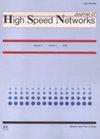两种基于模糊模型的逻辑信任决策比较研究
IF 1
Q4 COMPUTER SCIENCE, INFORMATION SYSTEMS
引用次数: 0
摘要
近年来,人与人之间、人与物之间的关系变得越来越复杂和不可靠,这使得在各种情况下做出决策变得更加困难。因此,信任计算越来越受到一些研究领域的关注。逻辑信任(LT)是信任计算概念之一。在本文中,我们设计了一个基于模糊的逻辑信任决策系统(FSDLT)。我们实现了两个模型:FSDLTM1 和 FSDLTM2。FSDLTM1 考虑了三个输入参数:信念(Be)、经验(Ep)和理性(Ra),输出参数为 LT。在 FSDLTM2 中,我们将可靠性 (Re) 作为一个新参数。我们通过计算机模拟对所实施的模型进行了评估。模拟结果表明,当 Be、Ep、Ra 和 Re 增加时,LT 也随之增加。对于 FSDLTM1,当 Ep 值为 0.9 时,所有 LT 值都大于 0.5。而对于 FSDLTM2,当 Be 值为 0.9 时,对于所有 Ra 值和 Re 值,当 Ep 值为 0.5 和 0.9 时,所有 LT 值都大于 0.5。这表明个人或设备是可信的。FSDLTM2 比 FSALTM1 更为复杂,但它通过考虑四个输入参数对 LT 做出了更好的决策。本文章由计算机程序翻译,如有差异,请以英文原文为准。
A comparison study of two implemented fuzzy-based models for decision of logical trust
In recent years, the human-to-human and human-to-things relationships are becoming complicated and unreliable, which makes harder decisions in a variety of situations. As a result, trust computing is gaining interest in a number of research fields. The Logical Trust (LT) is one of trust computing concepts. In this paper, we design a Fuzzy-based System for Decision of Logical Trust (FSDLT). We implement two models: FSDLTM1 and FSDLTM2. The FSDLTM1 considers three input parameters: Belief (Be), Experience (Ep), Rationality (Ra) and the output parameter is LT. In FSDLTM2, we consider Reliability (Re) as a new parameter. We evaluated the implemented models by computer simulations. The simulation results show that when Be, Ep, Ra and Re are increasing, the LT is increased. For FSDLTM1, when Ep value is 0.9, all LT values are greater than 0.5. While for FSDLTM2, in case when Be is 0.9, for all values of Ra and Re, when Ep is 0.5 and 0.9, all LT values are higher than 0.5. This shows that the person or device is trustworthy. The FSDLTM2 is more complex than FSALTM1 but it makes a better decision for LT by considering four input parameters.
求助全文
通过发布文献求助,成功后即可免费获取论文全文。
去求助
来源期刊

Journal of High Speed Networks
Computer Science-Computer Networks and Communications
CiteScore
1.80
自引率
11.10%
发文量
26
期刊介绍:
The Journal of High Speed Networks is an international archival journal, active since 1992, providing a publication vehicle for covering a large number of topics of interest in the high performance networking and communication area. Its audience includes researchers, managers as well as network designers and operators. The main goal will be to provide timely dissemination of information and scientific knowledge.
The journal will publish contributed papers on novel research, survey and position papers on topics of current interest, technical notes, and short communications to report progress on long-term projects. Submissions to the Journal will be refereed consistently with the review process of leading technical journals, based on originality, significance, quality, and clarity.
The journal will publish papers on a number of topics ranging from design to practical experiences with operational high performance/speed networks.
 求助内容:
求助内容: 应助结果提醒方式:
应助结果提醒方式:


